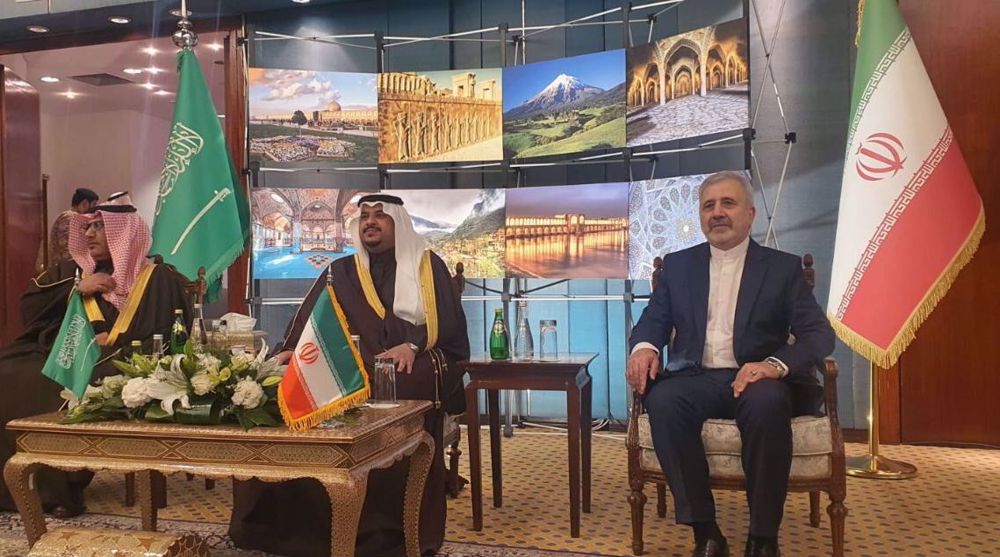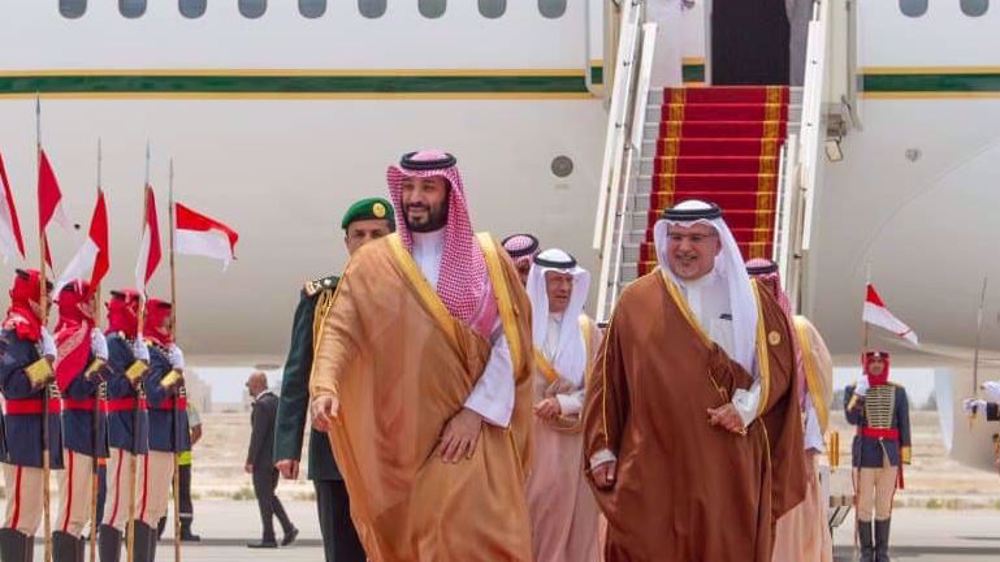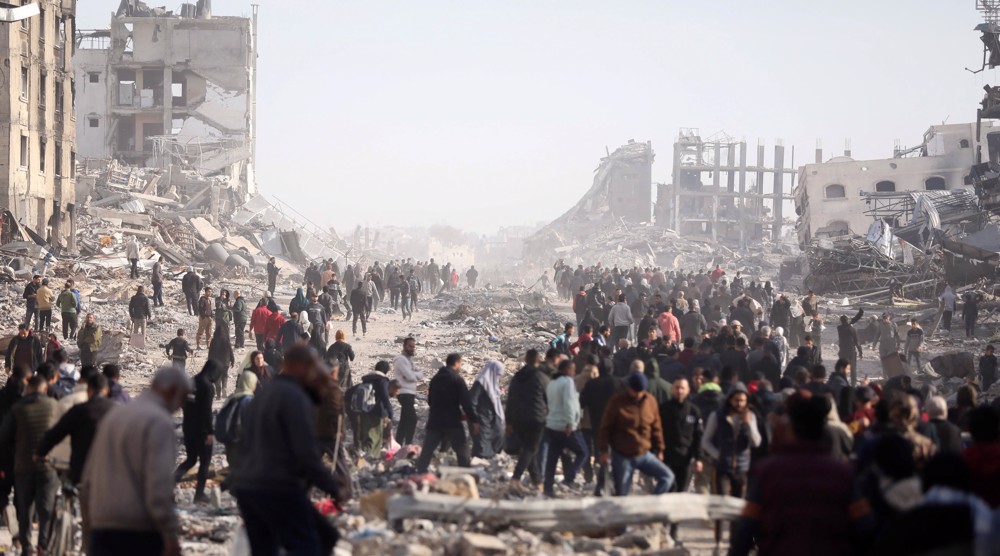Trump busts a move after record Saudi arms deal
US President Donald Trump joins a sword dance held in his honor in Saudi Arabia after signing Washington’s largest-ever single arms deal with Riyadh.
He was accompanied at the Saturday jubilation by Secretary of State Rex Tillerson and Secretary of Commerce Wilbur Ross.
Trump arrived in the Saudi capital earlier in the day on the first leg of a nine-day overseas tour. Upon arrival and official reception, he proceeded to sign the $110-billion deal and other agreements amounting to $250 billion before joining the party.
Saudi Foreign Minister Adel al-Jubeir put the volume of the collective bilateral deals higher, saying they were worth more than $380 billion.
White House spokesman Sean Spicer said on Twitter that the “defense agreement” was the "largest single arms deal in US history."
Speaking after the signing ceremony, Trump said, "That was a tremendous day. Tremendous investments in the United States. Hundreds of billions of dollars of investments into the United States and jobs, jobs, jobs."
Iran focus of arms deal
Tillerson claimed the intent of the arms deal was to support Riyadh "in particular in the face of malign Iranian influence and Iranian-related threats which exist on Saudi Arabia's borders."
He was echoing Saudi Arabia’s recurrent accusations against Iran of intervening in the region against the kingdom.
The kingdom has been pounding Yemen for over two years and killing thousands of civilians there, while accusing Tehran of intervention in the impoverished country.
Tehran has invariably spurned the claims. It said recently through its Foreign Ministry that its response to such repeated provocative remarks was that it was not seeking tension with Riyadh, and was even open to dialog with it.
Read more:
Riaydh, itself, is widely accused of funding and fueling Takfiri terrorism throughout the region. Iranian military top brass have, time and again, blamed the kingdom for hiring terrorists to operate against the Islamic Republic.
Tillerson, however, sounded in harmony with Riyadh’s rhetoric when he urged Iran's President Hassan Rouhani to dismantle "Iran’s network of terrorism" and to end the Islamic Republic’s ballistic missile tests.
Iran says its missiles are not capable of carrying nuclear warheads. It says its missile program solely serves the country’s defense and that it will not seek anyone’s permission to boost it.
Rouhani on Saturday called on Riyadh and its allies in the Persian Gulf to improve democratic standards within their own borders instead of playing a blame game with the Islamic Republic.
Later through the trip, Trump is expected to visit Israel, the Vatican, Sicily, and Belgium.
Observers say the drawn-out tour serves to misdirect attention from domestic woes, which emanate from Trump’s controversial and unpredictable measures, and serious standing accusations that his presidential campaign benefited from Russian contribution.
Trail of controversy
The trail of controversy did not stop when the US commander-in-chief’s wife Melania refused to cover her head during the Saudi trip, as is decreed by the kingdom’s regulations.
Trump's daughter and adviser Ivanka Trump also opted-out of covering her head during the state visit.

Trump in 2015 had criticized then-first lady Michelle Obama for not wearing a headscarf during a visit to Saudi Arabia, saying on Twitter that her hosts had been "insulted."
Under the kingdom's dress code for women, Saudi women and most female visitors are required to wear a loose, black robe, known as an abaya, in public.
President Trump has also been the subject of intense criticism for bowing down to King Salman while receiving an honorary gold medal from the monarch. Some US media have interpreted the act as one that befits “the king’s subjects” rather than the so-called leader of the free world.
The US president has also been called a hypocrite because of a tweet back in 2012 in which he took the then President Barrack Obama to task for “bowing to the Saudi king.”

The US president also gave his trademark thumbs up to the press as he rode the escalator from the tarmac to the royal terminal at the airport in Riyadh.
In much of the Arab world, the gesture is considered a vulgar sexual insult, which had been pointed out by mainstream US media ahead of the visit.
VIDEO | Second 'Day without Immigrants' in US: A stand against deportations
VIDEO | Press TV's news headlines
British TV industry calls on MPs to press BBC execs over Gaza documentary removal
North Korea slams US military provocations
VIDEO | Iran’s Leader underscores Quran as key to personal, social harmony
VIDEO | Al-Jundi Square, memorial leveled to the ground
Iran asks Turkish officials to avoid making incorrect remarks
OPEC+ to raise output for first time since 2022: Report












 This makes it easy to access the Press TV website
This makes it easy to access the Press TV website